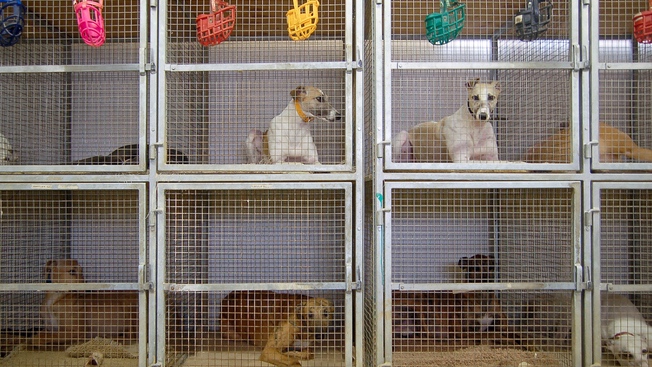
Although buying a dog from a breeder is the most popular way of bringing a new pup into your home, more and more people are considering adoption. And with good reason. Adopting a dog means you’re giving a good home to a pooch that may otherwise be left without a family. As with any decision, however, it needs to be given some thought.
Here we take a look at 32 facts you need to know about adopting a dog – facts that will make you stop and think, facts that will help you decide if adoption is for you and facts that are just plain fun. As you will see, those who run and work in shelters and rescue centers are doing an amazing job and they deserve our support.
32 facts you need to know about adopting a dog
It’s a very good thing to do
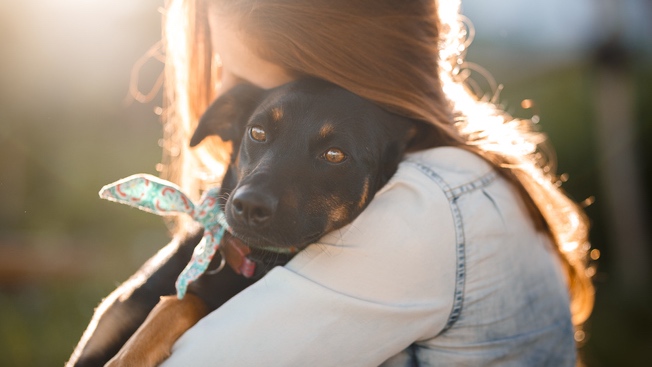
When you are adopting a dog, you’re doing so much good. In most cases, you are giving a pooch a second chance of happiness by allowing them to live a rich, fulfilling life – the likes of which they may never have had beforehand. Adoption is generally seen to be better than shopping for a dog because you’re potentially saving a life. One thing’s for sure, you’re going to be avoiding backyard puppy breeders, some of which can be unscrupulous in their approach.
There are more homeless animals than humans

According to statistics from the Department of Housing and Urban Development, around 582,462 Americans are experiencing homelessness. It’s a tragic figure and one which needs to be urgently tackled. There are also 70 million stray animals living in the US, a huge proportion of which are dogs. It, too, is a damning figure and a good indication as to why adopting one of these poor canines when they find their way into a shelter really is an important thing to do.
You’re actually saving more than one life
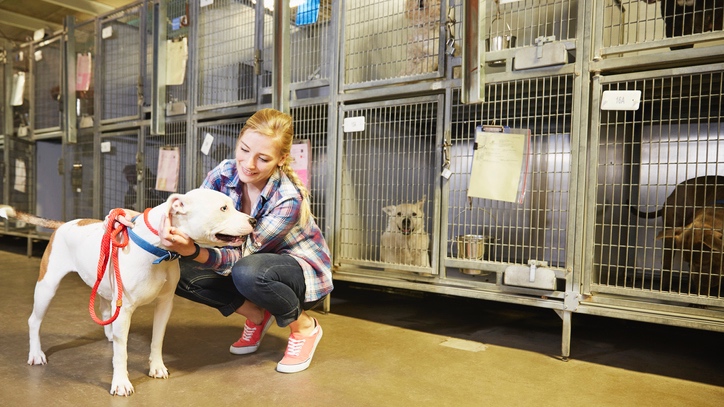
Adoption isn’t only beneficial for the dog you will be taking into your home. It is also fantastic for other dogs who need to be rescued. When you take on a dog from a shelter or a rescue, you are also freeing up space for another poor pup and that, in turn, means they also have a chance of being rehomed. With space at a premium – so much so that some dogs end up being euthanized for space – adoption into a forever home plainly plays a vital role.
Adopted dogs are in the minority
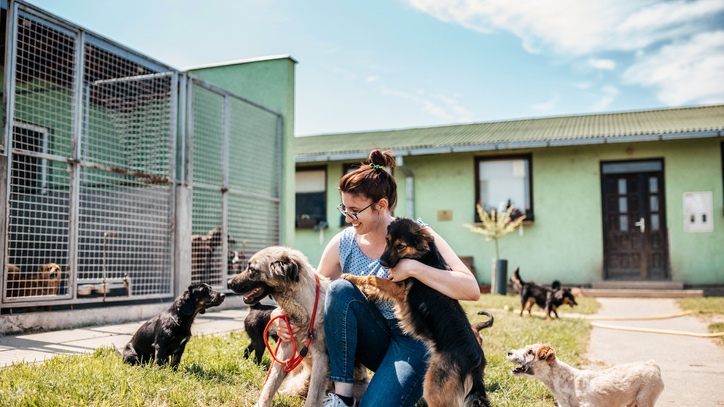
Statistics in the US suggest that only 23% of dogs are adopted from shelters or humane societies. According to the American Society for the Prevention of Cruelty to Animals, that’s equating to two million adopted dogs each year (out 3.1 million who enter US animal shelters annually). By adopting, you’re helping to get the numbers up and maybe even showing friends and other family members the benefits of adoption. There are lots of dogs waiting for homes.
You can return a dog – but try not to!
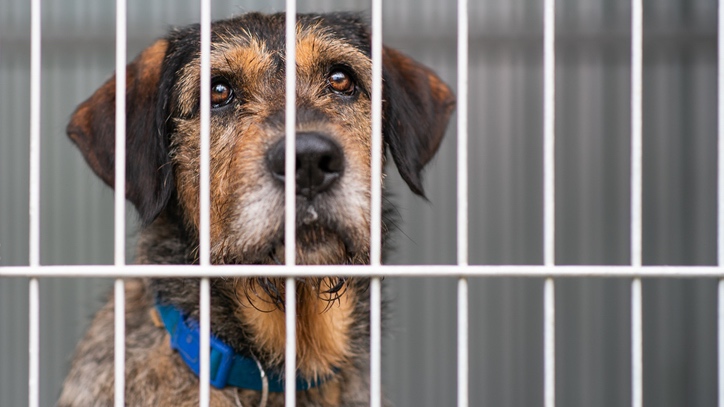
When adopting a dog from a shelter or rescue, there is always the possibility of returning it. Of course, it’s not an ideal situation and it should be avoided with careful research and planning beforehand. But, that said, not everything goes as smoothly as you expect. Lives and circumstances can quickly change and problems can arise with a pooch that you may feel unable to cope with. The key, however, is in taking your time and working out whether an adopted dog is a good fit for you before taking the plunge.
It’s important to find a reputable shelter
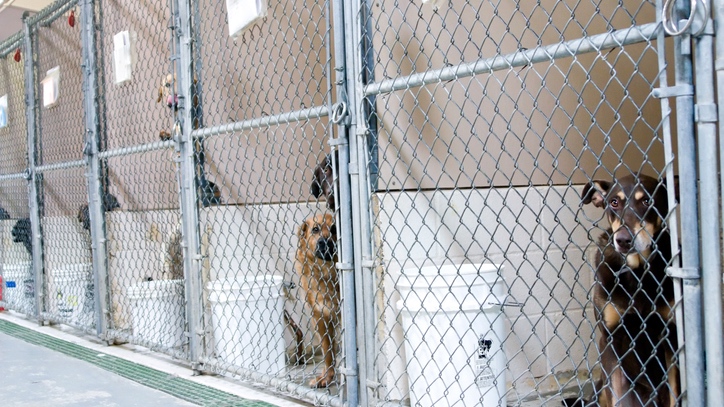
One of the crucial things to consider when adopting a dog is whether the shelter you are visiting is putting the welfare of our canine companions first. So ask to see how the dogs are being housed, ask a whole bunch of questions and be absolutely sure that you are supporting a shelter that is doing good. Adoption can be as much about supporting a reputable shelter in their amazing work as it is homing a vulnerable dog. It’s in everyone’s interest to ensure shelters are up to scratch.
They can still cost a lot of money
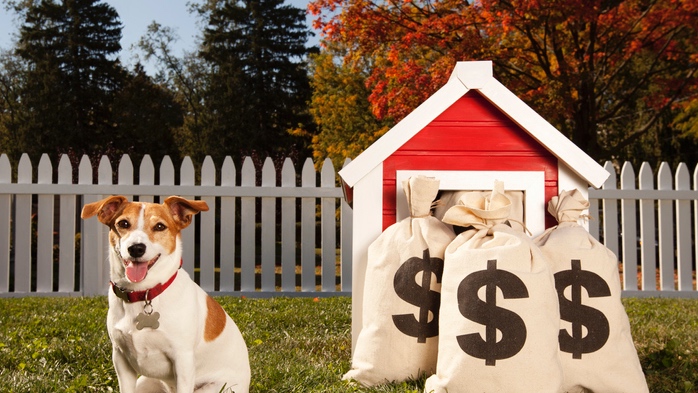
So you’ve fallen in love with a dog and you dearly want to adopt it. You’re also pleasantly surprised to discover that the cost of adopting a dog tends to be cheaper than buying from a breeder. But you still need to do the math. The upfront cost is only half the tail – sorry, tale – and you need to take into consideration all of the other things that a pooch will need from food and toys to essential equipment such as beds and beds and leads. Make sure you can afford a dog.
They can be at different stages of life

There are a few reasons why you’ll want to know a dog’s lifespan. On the one hand, you’ll need to work out how long you’re going to need to be committed to your potential adopted pooch and, on the other, you’ll want to know how long it’s going to be before you have to prepare to say a sad farewell. The importance of this question depends on your motivation for adopting. You may be looking to give a dog a great end to their life or looking for a dog to stick by you for years.
Their history is important
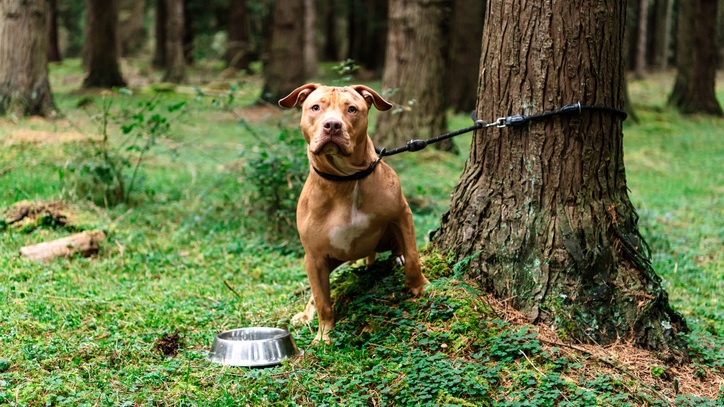
When adopting a dog, it’s crucial that you know everything about him or her so that you understand exactly what you’re going to have to do in the future. You’ll need to know where the dog has come from and how well the dog has been treated especially if you are rehoming a rescue dog. Some of them have sadly been neglected or suffered cruelly and that requires a different strategy to those born in care. Never be afraid to ask. In fact, you’ll be expected to ask.
You need to know about their health

When adopting a dog, you need to know if he or she has been vaccinated. It’s also important to learn if the dog has been neutered (which means the testicles have been removed in males) or spayed (in which females have their womb and ovaries removed) – they will have if you're buying from a shelter or rescue. Learning more about a dog’s health will give you an idea of the cost of adoption and also how much care and attention you will have to give to specific conditions. It shouldn’t be a deal-breaker. It’s just for information.
Adults can often be sadly overlooked
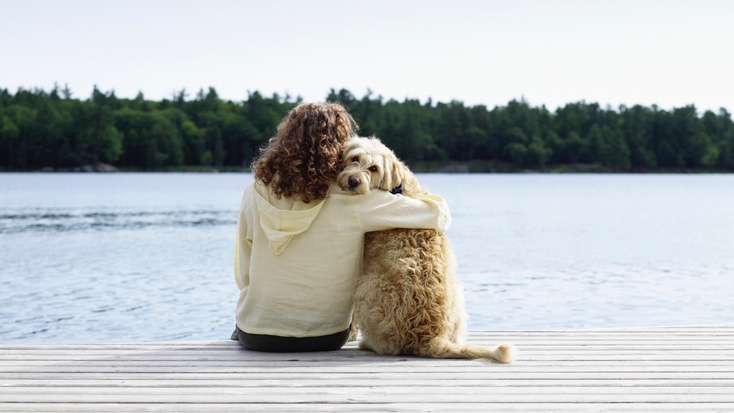
Adoption tends to involve adult dogs and that’s a good thing. So many people overlook adult dogs because in favour of puppies and, by adopting, you’re helping to balance things out a little. Older canines still have so much to give and, in some cases, adult dogs can be easier than raising a puppy. They will have likely received some training, be housetrained and less destructive, depending on their upbringing. Worried you won’t be able to enjoy teaching them new tricks? You’ll be surprised that old dogs can still learn them.
There are loads of mixed-breed dogs

The majority of dogs in shelters are mixed breed so if that appeals then you are certainly going to be in luck. Indeed, with mutts becoming more and more popular among owners, heading to a shelter is going to prove to be a very good move for you. The only thing you will need to be careful of, however, is whether a breed is being misidentified. A study published in the journal PLOS One once showed that shelter staff only get it right 67% of the time.
Adopted mixed-breed dogs can be healthier
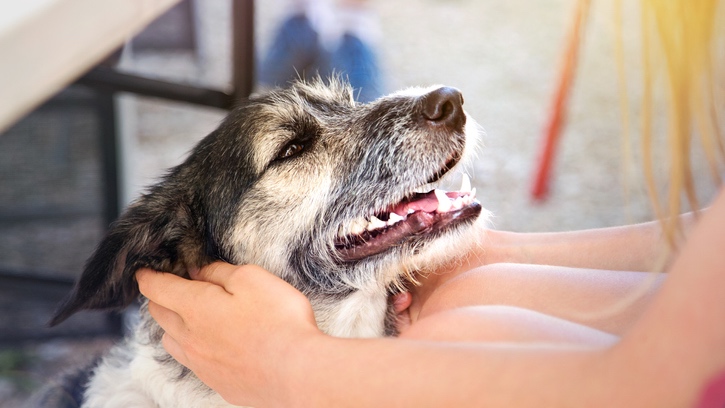
It has long been known that mixed-breed dogs can be healthier than purebred dogs. There’s a valid, logical reason for this, too: mixed-breed dogs have a wider gene pool than purebred ones and that means a mutt is going to be less inclined to suffer from hereditary genetic disorders. Interesting, mixed-breed dogs live, on average, four years longer than purebred ones so if you’re after a dog that will be by your side for a long time to come, adopt a mutt.
You can get purebred dogs at shelters

You may be under the misapprehension that all of the dogs you find up for adoption are mongrels but that isn’t the case in reality. About a quarter are purebred, although it must be pointed out that most of them are American Pit Bull Terriers or other Pit Bull types. It’s not uncommon to find Labrador Retrievers, Boxers and German Shepherd dogs up for adoption, however. In other words, you should be able to find the dog you want if you seek to adopt.
Pit Bulls need a home too
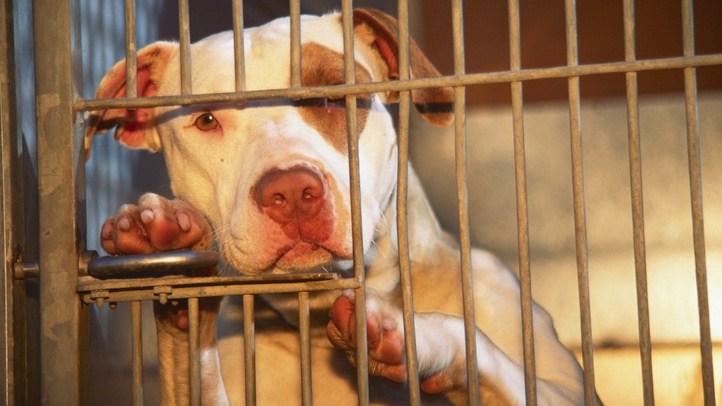
Yes, Pit Bulls are deemed dangerous by some but they can also be very smily dogs who would do no harm. Adopt a well-trained Pit Bull or be prepared to put in a lot of time and effort to train one yourself and you will find you have a wonderful family pet on your hands. There is no denying that they are strong dogs with powerful jaws, though, so you shouldn’t take one on board if you don’t believe you can handle it. Talk to the shelter in great detail about an individual dog’s temperament.
A dog’s personality is often established

One of the benefits of adopting a dog is that the shelter or rescue workers will have a very good idea of the pooch’s personality. They will be able to tell you what the dog likes and doesn’t like and they will also be able to give you the heads-up if there are any potential problems. The whole point of adoption is that dogs are given loving homes. In that sense, shelters will go to great lengths to work out if you and your dog will be a good match.
The dog may not behave well

Much depends on a dog’s upbringing and whether or not the pooch has been socialized. A poorly socialized dog may not react well at first to having children or strangers around. That’s not to say they’ll bite but they can become more anxious in unfamiliar environments. It’s important to know if a dog has been properly socialized so that you can work out what your next steps will be. In some instances, you may want to seek professional assistance for your adopted dog.
A dog may behave very well
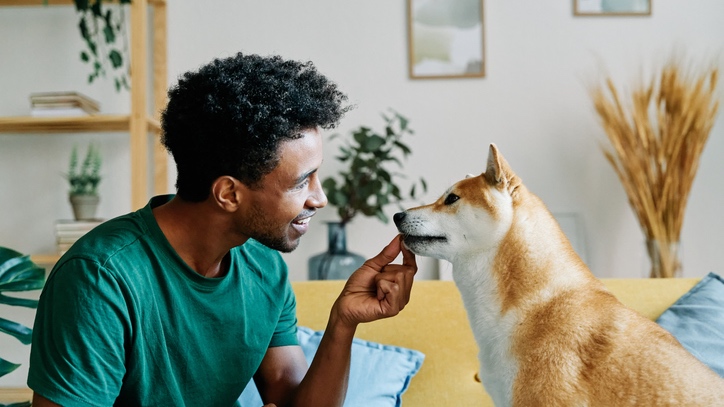
Just because a dog is in a shelter doesn’t mean they have been neglected or poorly treated. A dog may have ended up in that situation simply because the previous owner had a life change that meant they couldn’t have a dog. Indeed, there are many different reasons why a dog is being put up for adoption from landlords who won't entertain pets to a sudden human death. So it pays not to go into an adoption with preconceptions and to keep your eyes and mind firmly open.
You may need to housetrain your pooch

Just because a dog is an adult doesn’t mean that they are housetrained – or at least housetrained to the degree that you’d like. But that’s not really a problem if you simply assume that you will have to start from scratch in the same way that you would if you shopped for pup. By engaging in basic training, you’ll soon see what your dog is capable of and help them to move forwards. You will also begin to understand your dog better if you take this approach.
It may take more time to bond

Patience is required when you adopt a dog – even more so than when you simply buy one. You may need to give your adopted dog confidence since they are going into new surroundings. You also need to take into account any problems they may have encountered in the past. Quiet time together will enable you to better bond with your pet. One thing’s for sure, you should never shout at an adopted dog just as you should never yell at any pooch, come to that.
You can get retired service dogs

There is great satisfaction in rehoming a retired service dog, knowing that you will be giving them a comfortable, loving life as a reward for all of their years of hard work. But, whether you’re adopting a retired military, working, police or guide dog, you will still need to know about their background. Some service dogs fail to make the grade, for example, and can have myriad problems while military dogs will have to undergo some retraining.
Adoption promotes neutering and spaying
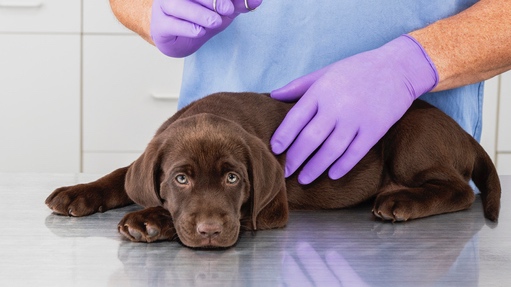
Shelters will neuter and spay dogs and that’s a good thing. It means more pets will have had these procedures and they will be more affectionate pets as a result. Spaying and neutering also leads to longer lives for dogs and it ensures that your dog definitely won’t be able to get pregnant – so no unwanted surprises. It keeps the dog population in check too, reducing the number of canines being abandoned and needing to be adopted in the future.
Vet trips are still necessary
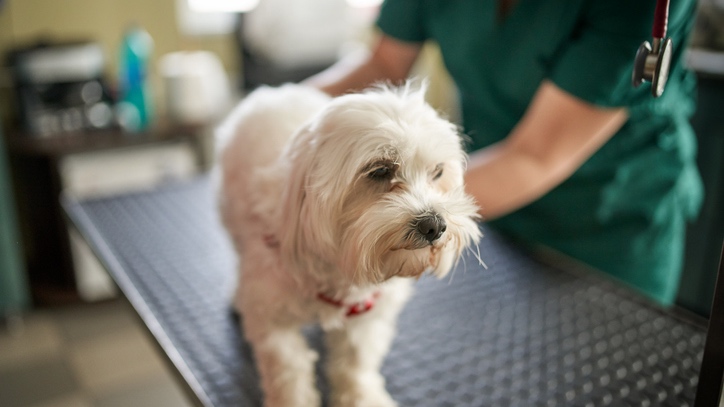
Just because a shelter or rescue organisation reckons your dog is in good shape, it’s still advisable to take your adopted pooch to a vet for another checkover. If nothing else, you’ll be getting your dog on your vet’s books and ticking the right boxes – a vet may spot something which can be easily rectified such as a missed jab or an infection. In other words, adopting a dog just has the same responsibilities as buying a dog from a breeder or shop.
The microchip registration needs transferring
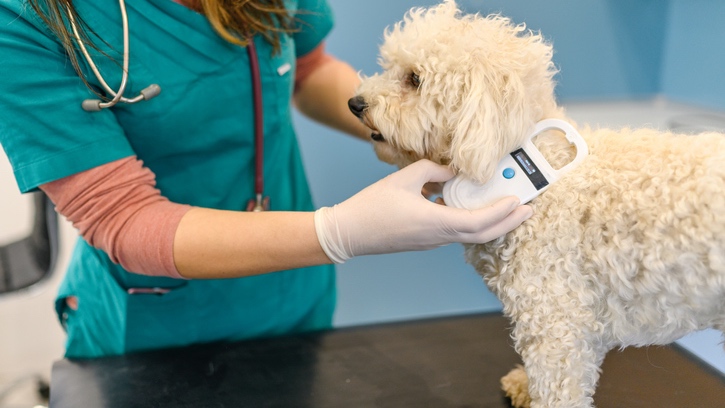
When you adopt a dog, double check that the microchip registration will be transferred to yourself and, if not, visit a vet so they can tell you the name of the company the microchip is registered with. You can then take steps to ensure it is in your name so that, should anything happen in the future, your adopted dog ends up being traced back to you and not any previous owner. Updates can be carried out online, by post or by telephone depending on the company.
Most dog adopters would adopt again
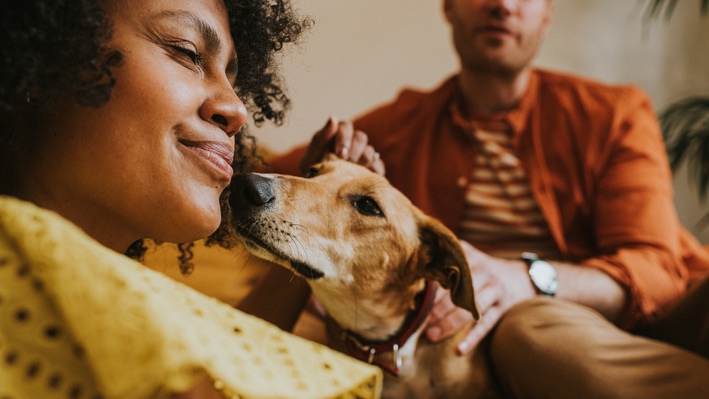
Some adopters regret taking on a dog but the vast majority don’t. A British survey to mark National Adoption Day found that three-quarters of adopters would adopt again. It’s great news and shows that the system is working, by and large, ensuring lots of wonderful dogs are getting fabulous new loving homes with owners who are patient and willing to put in the time to give them a second chance in life. With a bit of luck, positive words will continue to spread.
Adoption doesn’t take a very long time
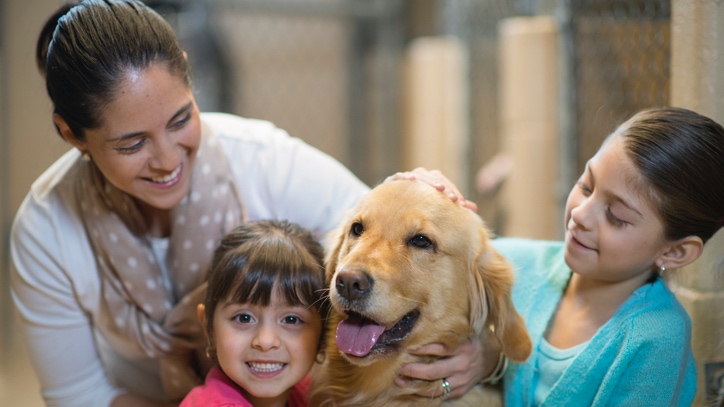
It’s true that you won’t be able to walk into a shelter, point at a dog you like the look of and take it away with you that very same day. Adoption doesn’t work like that. Instead, it’s more like dating where the shelter management are trying to match-make potential owners with pets that are going to be best suited to them. There will be meetings to discuss the ins and outs of adopting a dog but once you’ve been accepted, you’ll have your dog at home within a week or so.
You’re saving taxpayers’ money
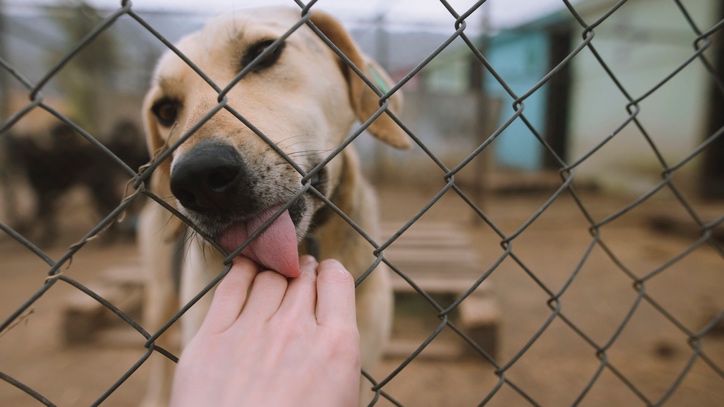
Money isn’t everything, especially when it comes to a dog’s life but it costs around $2 billion each year in the US to round up, house and euthanize homeless animals. Adopting a dog lowers the number of dogs needing to be euthanized and, quite aside from the fact that there’s an actual life at stake there, that’s a taxpayer money saver. So your adoption of a wonderful, cute little dog could mean more money being freed up for the benefit of communities.
You may have a star on your hands

A number of adopted dogs have not only been taken to the hearts of their owners but also the nation and world at large. The movie Benji from 1974 arguably paved the way with a mixed breed dog starring a real shelter rescuee. Then there is Mr Winkle, rescued as a stray before becoming something of a marketing phenomenon. Adopted dogs have backstories that make them interesting and, of course, they will remain as cute as they were when they were born.
Loads of celebrities adopt dogs

This could start reading like a Who’s Who of Hollywood but so many celebs have rescued dogs including Sandra Bullock, John Travolta, Whoopi Goldberg, Liev Schreiber and Jennifer Aniston. Ariana Grande is a devoted fan of adopted dogs: she has nine of them. The singer has always been a big dog lover and she’s a firm believer in ensuring dogs have the same happiness growing up as she did when she was a child.
You can adopt dogs from overseas

But if you do, be very careful. Not all dog importers are above board and the stories they may tell about a dog requiring adoption aren’t always true. It’s always better to adopt a dog from your own country and to speak and see the pooch before you part with any money. That way, you can be more sure that your dog isn’t going to be carrying infectious diseases such as rabies. You will also significantly cut down on paperwork and the time spent on tests.
You’ll get support from adoption centers

People who work in shelters care for dogs. They want to see them rehoused and loved and they dearly want things to work out for you. So they’ll be there for help and advice. They will support you through your new journey with your new fun pal. So don’t be afraid to call them up if need be or to simply keep in touch with them so they know how one of their furry friends is getting on. Who knows, you may even end up volunteering some of your time in return.
Adopting helps to close puppy mills

The more people adopt, the fewer the need for puppy mills. And that is a very good thing! Puppy mills – or puppy farms – are controversial for many reasons. They exist to provide potential pets and make money, with an emphasis on quantity. Be wary of unlicensed puppy mills and any that appear to have a choice of breeds. And never meet a breeder in a neutral location. Buying a dog in a parking lot isn’t likely to be the sign of a legitimate breeder.







